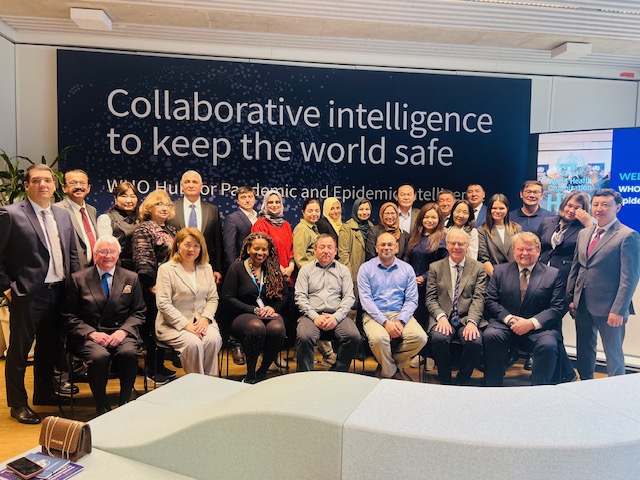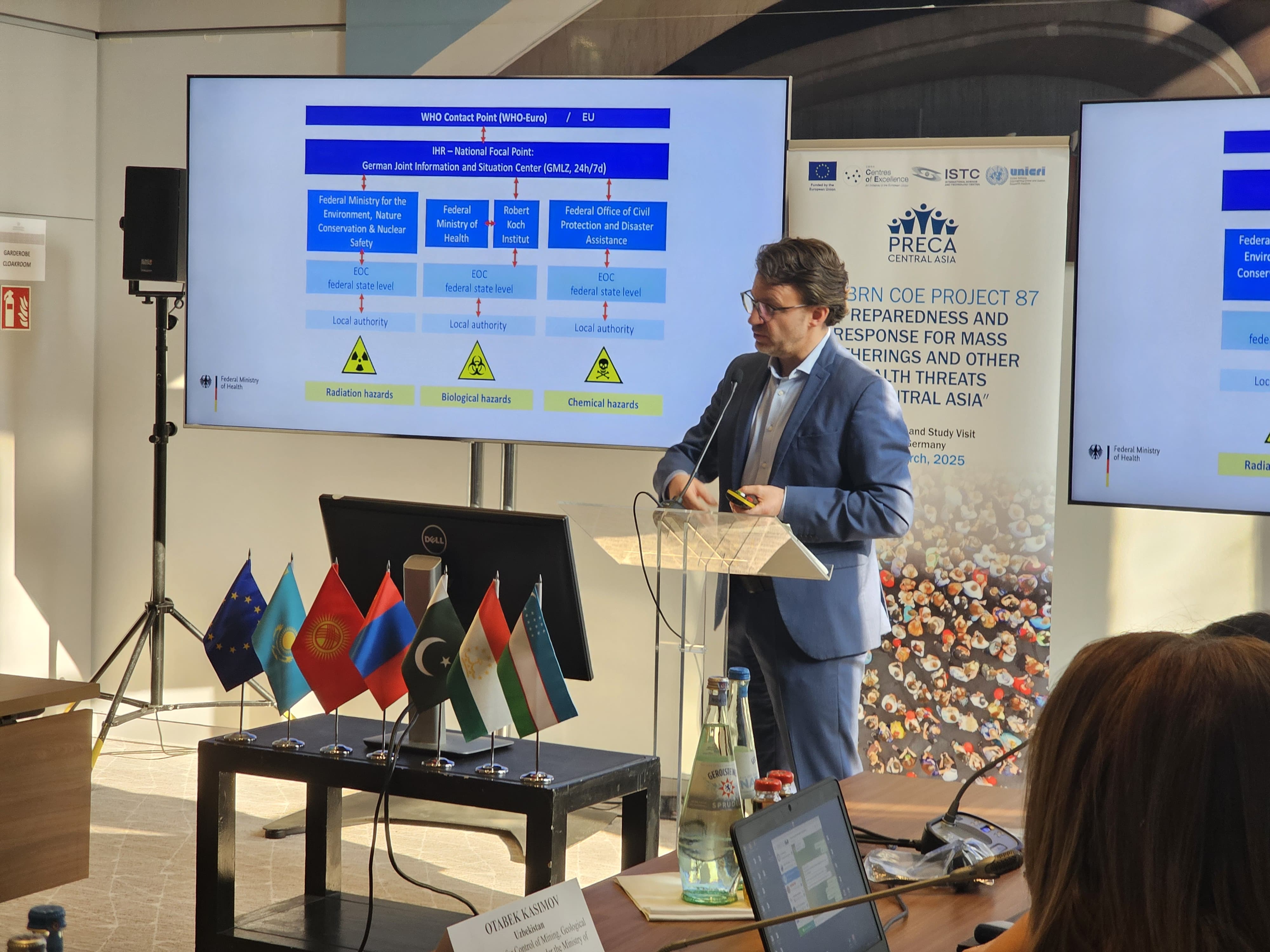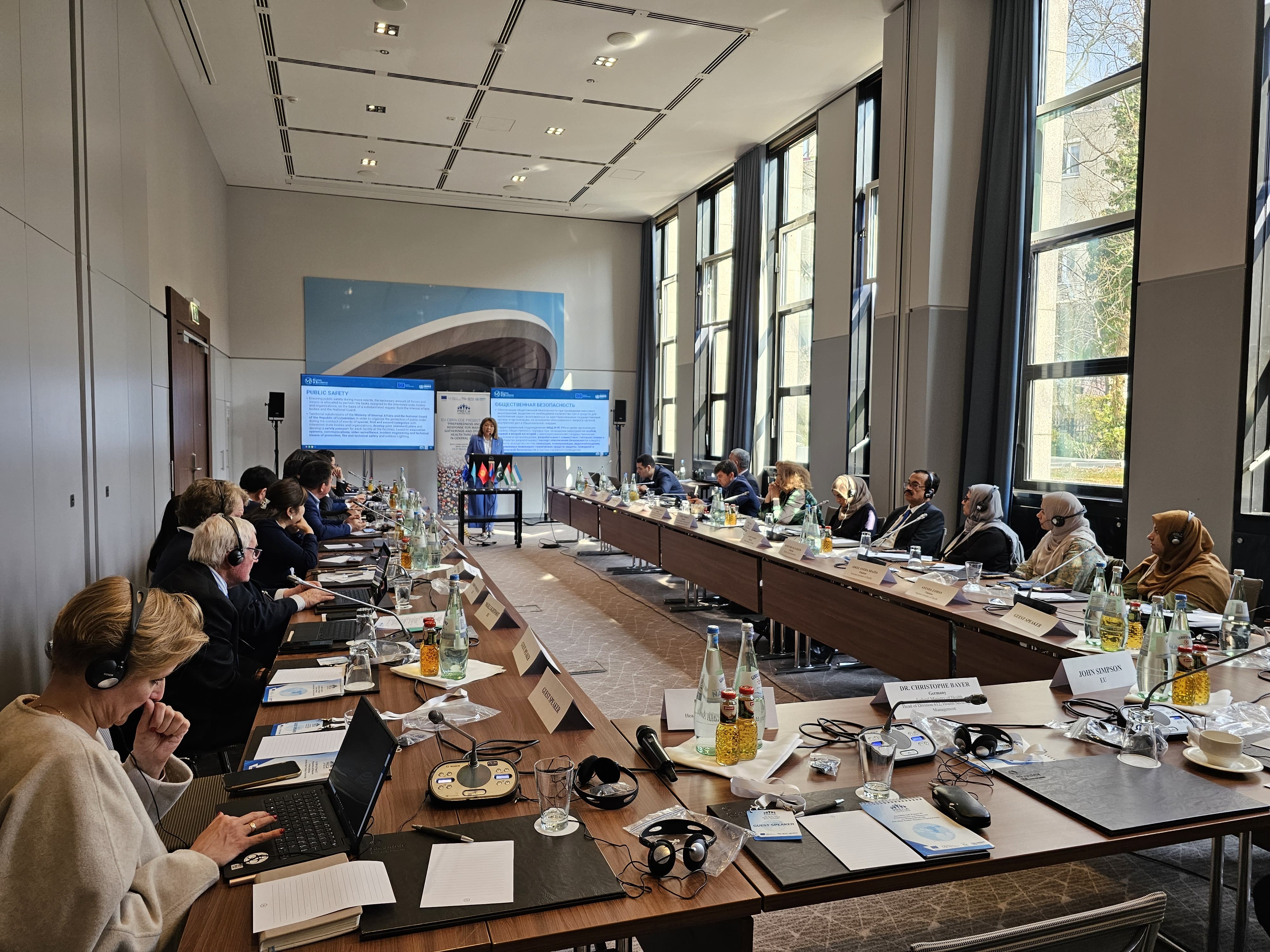ISTC facilitates Study Visit in Berlin between CA and German decision-makers within EU CBRN CoE Project 87

The EU-funded CBRN CoE Project 87 (PRECA) brought together public health and crisis management experts from six Central Asian countries and from Germany for a high-impact liaison and study visit in Berlin (24-27 March 2025). This event aimed to foster knowledge exchange, strengthen communication between regions, and enhance preparedness and response to mass gatherings.
The visit program featured expert-led sessions by Germany’s Robert Koch Institute (RKI), the Federal Ministry of Health, the Berlin Health Authority, and the Federal Institute of Risk Assessment, focusing on cross-border collaboration, crisis response strategies, and health security policies.
As part of the visit, ISTC organized a day at the World Health Organization Hub for Pandemic and Epidemic Intelligence (WHO Hub in Berlin), where Central Asian experts learned how collaborative surveillance empowers countries and communities to minimise the impact of pandemic and epidemic threats.
Participants engaged in a hands-on session testing the simulator prototype, followed by a discussion that surfaced valuable insights on its practical applications and future enhancements. Insights from this session will feed into ongoing, co-creation-driven discussions to guide iterative improvements to the Simulator. The Decision Support Simulator for Epidemics and Pandemics will model disease transmission, simulate the impact of interventions and facilitate the use of country-specific data to support informed decision-making during health emergencies and preparedness activities. The prototype will be made available for testing by a pilot group in the coming weeks. A collaborative working group involving the WHO Hub in Berlin and PRECA countries has been formed, laying the groundwork for sustained project impact.
The study visit served as a platform for knowledge exchange and future collaboration, ensuring Central Asian countries are equipped with the latest tools and best practices in public health emergency preparedness.

Key highlights include:
- Visit to the World Health Organization Hub for Pandemic and Epidemic Intelligence.
- Presentations from CA countries, showcasing PRECA achievements.
- Insights from Germany’s approach to surveillance and risk assessment during large-scale events.
- Bio-Terrorism and Health Risk Assessments, featuring discussions with experts from RKI, the German Federal Institute for Risk Assessment.
Background information:
The EU CBRN CoE Initiative is funded by the EU and implemented in cooperation with the United Nations Interregional Crime and Justice Research Institute (UNICRI) and the European Commission Joint Research Centre (JRC). The European External Action Service is also involved in the follow-up to the initiative. The initiative is developed with the technical support of relevant international and regional organizations, the EU Member States, and other stakeholders, through coherent and effective cooperation at the national, regional and international level. The initiative involves 62 countries in eight regions across the world.
EU CBRN CoE Project 87 is implemented by the International Science and Technology Center (ISTC), Astana, Kazakhstan. This project focuses on enhancing preparedness and response capabilities for mass gatherings and public health emergencies. The project has been underway for more than three years and formed a network of experts in Food Safety, Water Safety, Chemical Safety and Public Health Command Control and Communications (C3).


